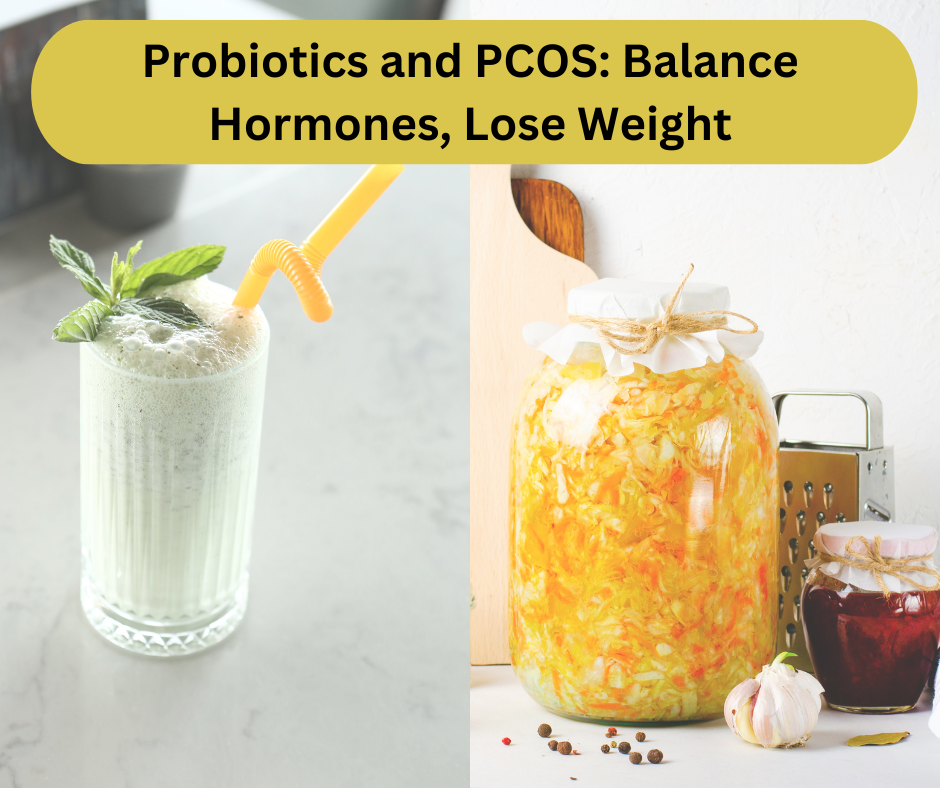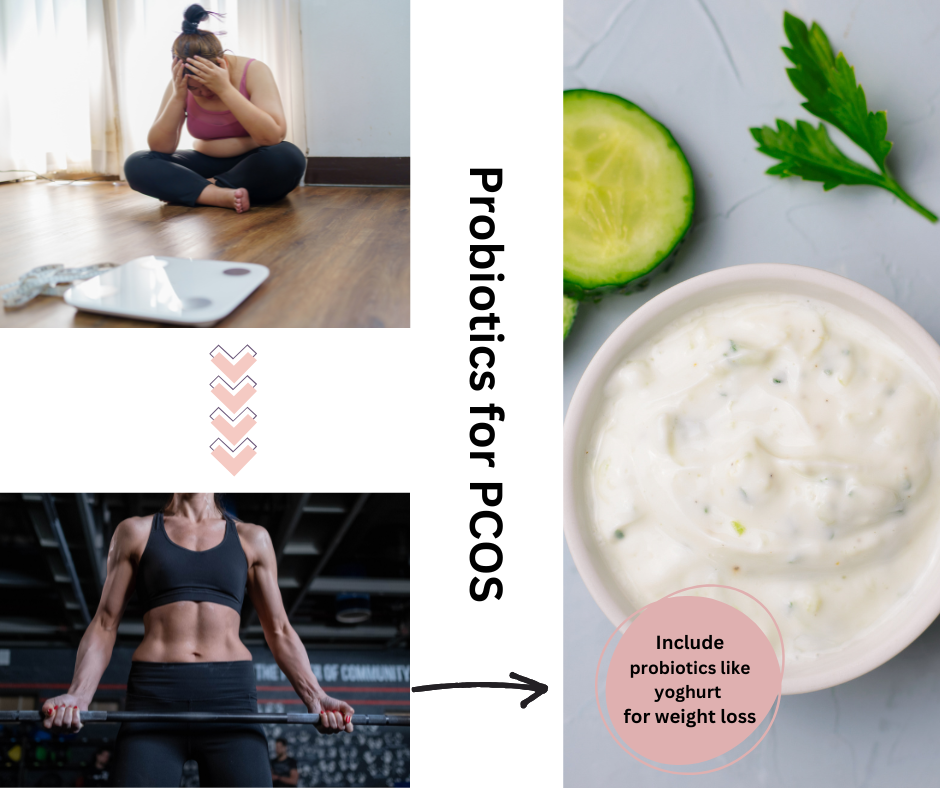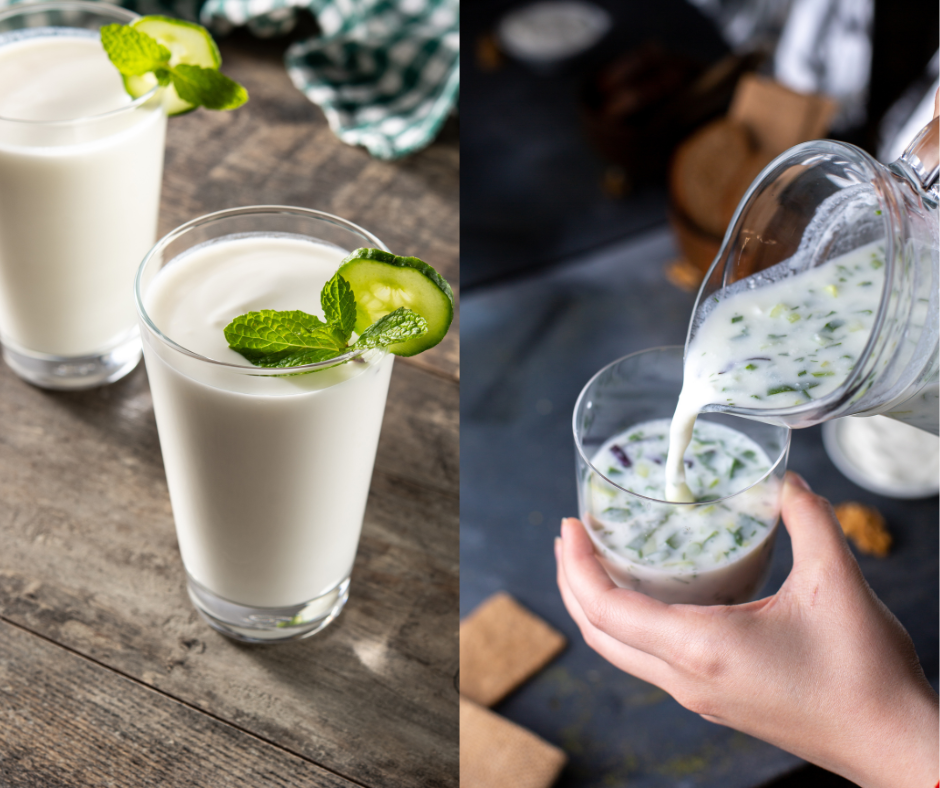Introduction
Table of Contents
Living with PCOS can be overwhelming, especially when weight loss feels impossible and hormonal imbalances take over. But here’s the good news: the secret to relief might be hiding in your gut! 🌱
Probiotics and PCOS: Balance Hormones, Lose Weight is more than just a catchy phrase – it’s a real solution. Probiotics, the friendly bacteria in your gut, help regulate hormones, improve insulin sensitivity, and reduce inflammation. For women with PCOS, these tiny helpers can make weight loss and symptom management feel less like a struggle and more like a win. Ready to unlock the power of your gut? Let’s dive in! 💪✨
Let’s begin with what is probiotics ?
The term “probiotics” comes from the Greek language, where it translates to “for life.” This fascinating origin highlights the vital role these beneficial microbes play in promoting our health and well-being!’. The FAO-WHO describes probiotics as “live microorganisms that when administered in adequate amounts confer a significant health benefit on the host”. Eg yoghurt, kombucha, kefir etc.

Probiotics role in gut
They restore balance in the gut microbiome, aiding digestion, boosting immunity, and reducing inflammation. These tiny helpers improve nutrient absorption, help manage issues like bloating and IBS, and even support mental health by influencing the gut-brain connection.
Probiotics also enhance metabolism and help regulate weight by breaking down fiber and supporting gut cell health. Include probiotic-rich foods like yogurt, kefir, or sauerkraut in your diet to keep your gut – and overall health – thriving! Let’s dive more into the connection between Probiotics and PCOS: Balance Hormones, Lose Weight.
The link between PCOS and Gut health
How does PCOS affect the gut health?
Polycystic Ovary Syndrome (PCOS) is often caused by lifestyle disruptions, particularly due to an unhealthy diet. This disruption can lead to a reduction in important microorganisms in the gut, resulting in various problems that either contribute to or worsen PCOS symptoms.
A study conducted in 2012 found that consuming high-fat and high-carbohydrate foods can negatively impact gut health. This can damage the gut barrier, allowing toxins and antigens to enter the system, which may cause symptoms such as low energy and inflammation.
As a result, women with PCOS may experience poor gut health, leading to issues such as bad skin, hair loss, and deficiencies in vitamins and minerals. This will also lead to problems like insulin resistance, weight gain, mood swings, constipation, etc Therefore, addressing gut health should be a priority when managing PCOS. Thus learning about Probiotics and PCOS: Balance Hormones, Lose Weight becomes more important.
How Probiotics Aid in Weight Loss for PCOS Women
PCOS and digestive issues:-
Nowadays, studies on Probiotics and PCOS: Balance Hormones, Lose Weight are being widely researched, and the results have been fairly positive. Women with PCOS tend to have a gut microbiome that contains fewer beneficial bacteria compared to healthy women. This reduction may be linked to factors such as hyperandrogenism and inflammation in the gut. Probiotics and PCOS: Balance Hormones, Lose Weight emphasizes the role of key beneficial bacteria like Lactobacilli and Bifidobacteria in supporting a healthy gut.
When these beneficial bacteria are diminished, antigenic bacteria such as Escherichia and Shigella tend to increase in number. This imbalance can lead to lower immunity, reduced nutrient absorption, and increased gut inflammation, all contributing to an unhealthy gut. Incorporating probiotics can help restore this balance, improving overall gut health and addressing core PCOS symptoms.
PCOS and Insulin resistance:-
When the gut microbiota is altered, it can lead to increased intestinal permeability. This weakens the mucosal layer of the gut, allowing various hormones, toxins, and antigens to enter the bloodstream. As a result, lipids (lipopolysaccharides) present in these toxins or harmful bacteria can disrupt insulin activity, causing insulin resistance in women with PCOS.
Insulin resistance is one of the most common symptoms of PCOS and can be sometimes ignored during the initial stages. When a person has a bad lifestyle and bad eating habits, the gut which is the main area of all the good-health-maintenance happens gets weakened and brings about all the chronic lifestyle diseases. Thus keeping a healthy gut is very important.
Probiotics and weightloss:-
In research studies, probiotics have shown great promise in the treatment of PCOS (Polycystic Ovary Syndrome). Probiotics are beneficial bacteria that help maintain gut health. When gut health is compromised and filled with harmful bacteria, supplementing with probiotics can help restore balance and improve gut function.
Probiotics have also been beneficial for weight loss for the same reason. By improving gut health, weight loss becomes easier for individuals with PCOS. Additionally, probiotics have been found to help reduce androgen and testosterone levels, aiding in hormone regulation. Research has shown a significant decrease in the BMI, and waist-to-hip ratio of women who have been consuming probiotics. Probiotics have shown great results in lowering the glycemic index and controlling insulin levels.

As mentioned earlier, poor gut health can negatively impact a person’s immune system, particularly in those with PCOS. Probiotics have been shown to help restore lost immunity and prevent various health issues. One of the challenges with PCOS is that when one organ is affected, there is a higher chance of other organs being impacted as well. However, by adopting a healthier lifestyle and a balanced diet, these concerns can be alleviated.
The good bacteria commonly recognized and used as probiotics include Lactobacillus, Bacillus, Bifidobacterium, Streptococcus, and Enterococcus.
Scientific Studies Backing Probiotics for PCOS
Probiotics have been studied for their potential benefits in managing weight and metabolic parameters in women with Polycystic Ovary Syndrome (PCOS). Key findings from research include:
- Weight Reduction: A randomized, double-blind, placebo-controlled trial involving 60 women with PCOS demonstrated that 12 weeks of probiotic supplementation led to a significant reduction in weight and Body Mass Index (BMI) compared to a placebo. The study reported a weight decrease of 0.5 ± 0.4 kg in the probiotic group versus a 0.1 ± 1.0 kg increase in the placebo group (p = 0.004). PubMed
- Improved Glycemic Control: The same study observed significant decreases in fasting plasma glucose and serum insulin concentrations among participants receiving probiotics. Fasting plasma glucose decreased by 2.4 ± 8.4 mg/dL in the probiotic group, compared to an increase of 2.1 ± 7.0 mg/dL in the placebo group (p = 0.02). PubMed
- Enhanced Insulin Sensitivity: Probiotic supplementation was associated with improved insulin sensitivity, as indicated by a significant reduction in the Homeostasis Model Assessment of Insulin Resistance (HOMA-IR) scores. HOMA-IR decreased by 0.5 ± 1.4 in the probiotic group, whereas it increased by 0.3 ± 1.1 in the placebo group (p = 0.01). PubMed
- Lipid Profile Improvement: Participants receiving probiotics experienced a significant decrease in serum triglycerides and VLDL-cholesterol concentrations, suggesting a beneficial effect on lipid metabolism. Serum triglycerides decreased by 13.3 ± 51.3 mg/dL in the probiotic group, compared to an increase of 13.6 ± 37.1 mg/dL in the placebo group (p = 0.02). PubMed
- Menstrual and Metabolic Enhancements: Another randomized clinical trial found that combining probiotics with metformin over 12 weeks resulted in an 80% recovery rate of menstrual cycles in women with PCOS, compared to 55% with metformin alone and 40% with probiotics alone (p = 0.035). Additionally, the combination therapy led to significant improvements in metabolic profiles.
PubMed These studies suggest that probiotic supplementation can positively influence weight management, glycemic control, insulin sensitivity, lipid profiles, and menstrual regularity in women with PCOS. Incorporating probiotics into the treatment regimen for PCOS may offer a complementary approach to managing the condition’s metabolic and reproductive aspects.
How to include probiotics in your diet
Adding probiotics to your daily routine doesn’t have to be complicated. Let’s explore simple ways to include these gut-friendly bacteria, especially for women with PCOS. Plus, we’ll talk about how to combine probiotics with a PCOS-friendly diet and address any potential bumps along the way.
Let’s make it easy to bring those gut-friendly bacteria into your routine:
- Start with Probiotic-Rich Foods
- Add a serving of yogurt with live cultures to your breakfast.
- Snack on kefir, a tangy, drinkable probiotic-rich dairy product.
- Include fermented foods like kimchi, sauerkraut, or miso in your meals.
- For a plant-based option, try probiotic-rich pickles or tempeh.
Mix It Up with Smoothies
Blend probiotic-rich foods (like kefir or yogurt) with PCOS-friendly ingredients like spinach, berries, and flaxseeds. This is a delicious way to support your gut and hormones at the same time. 🥤
Go Beyond Dairy
If you’re lactose intolerant, look for non-dairy options like coconut yogurt or probiotic supplements.
Try Probiotic Supplements
Choose a high-quality probiotic with strains like Lactobacillus and Bifidobacterium, which are beneficial for PCOS. Studies suggest these strains help reduce inflammation and improve insulin sensitivity. (PubMed)
2. Combine Probiotics with a PCOS-Friendly Diet
Probiotics and PCOS: Balance Hormones, Lose Weight highlights that probiotics work best when paired with foods that nourish your gut and support hormone balance.
- Focus on Fiber: Probiotics love fiber—it’s their food! Add fiber-rich veggies like broccoli, asparagus, and artichokes to your meals. These foods support gut health and enhance the effects of Probiotics and PCOS: Balance Hormones, Lose Weight by promoting a healthier microbiome.
- Go Low-Glycemic: Choose complex carbs like quinoa and sweet potatoes to keep blood sugar stable. Combining these with probiotics can amplify the benefits outlined in Probiotics and PCOS: Balance Hormones, Lose Weight, including better glycemic control.
- Healthy Fats Are Your Friend: Include avocados, nuts, and seeds for added anti-inflammatory benefits. Pairing healthy fats with probiotics can enhance the overall effectiveness of Probiotics and PCOS: Balance Hormones, Lose Weight, helping to reduce inflammation and support weight management.
3. Watch Out for Potential Side Effects
Most people tolerate probiotics well, but it’s always good to be prepared:
Interactions with Medications: If you’re on antibiotics or immune-suppressing drugs, talk to your doctor before starting probiotics.
Temporary Digestive Upset: Some may experience mild bloating or gas when starting probiotics. This usually resolves as your gut adjusts.
Solution: Start with a small dose and gradually increase.
Allergic Reactions: Rare but possible, especially if you have allergies to specific ingredients in probiotic foods or supplements.
Solution: Read labels carefully and consult a doctor if unsure.
2 easy recipes for incorporating probiotics into your diet
1. Probiotic-Rich Curd (Yogurt) Parfait

Ingredients:
- 1 cup plain, unsweetened yogurt (dahi)
- 1/4 cup mixed berries (like strawberries, blueberries, or pomegranate)
- 1 tablespoon chia seeds or flaxseeds
- A drizzle of honey (optional)
Instructions:
- In a bowl, layer the yogurt with your choice of berries.
- Sprinkle chia seeds or flaxseeds on top for added fiber and omega-3s.
- Drizzle a little honey for sweetness if desired.
- Enjoy this simple parfait for breakfast or as a snack.
2. Lassi (Probiotic Drink) with a Twist

Ingredients:
- 1 cup plain yogurt
- 1/2 cup water
- 1/4 teaspoon roasted cumin powder
- 1/4 teaspoon black salt
- A pinch of hing (asafoetida)
- A handful of fresh mint leaves (optional)
Instructions:
- Blend the yogurt with water until smooth and creamy.
- Add roasted cumin powder, black salt, and hing, and blend again.
- Garnish with fresh mint leaves and serve chilled.
Conclusion
Probiotics and PCOS: Balance Hormones, Lose Weight
Incorporating probiotics into your daily routine can be a powerful step toward managing PCOS. By restoring balance to the gut microbiome, probiotics help address key challenges like hormonal imbalances, insulin resistance, inflammation, and weight management. When paired with a PCOS-friendly diet rich in fiber, low-glycemic foods, and healthy fats, probiotics can amplify their benefits, promoting a healthier body and a better quality of life.
While probiotics are not a magic cure, they offer a complementary approach to traditional PCOS treatments, empowering women to take charge of their health. Start small, stay consistent, and watch how the synergy between probiotics and a balanced diet helps you regain control, one step at a time.
Ready to embark on this journey? Your healthier, more balanced self is waiting! 🌟
For more such nutrition content click here.
